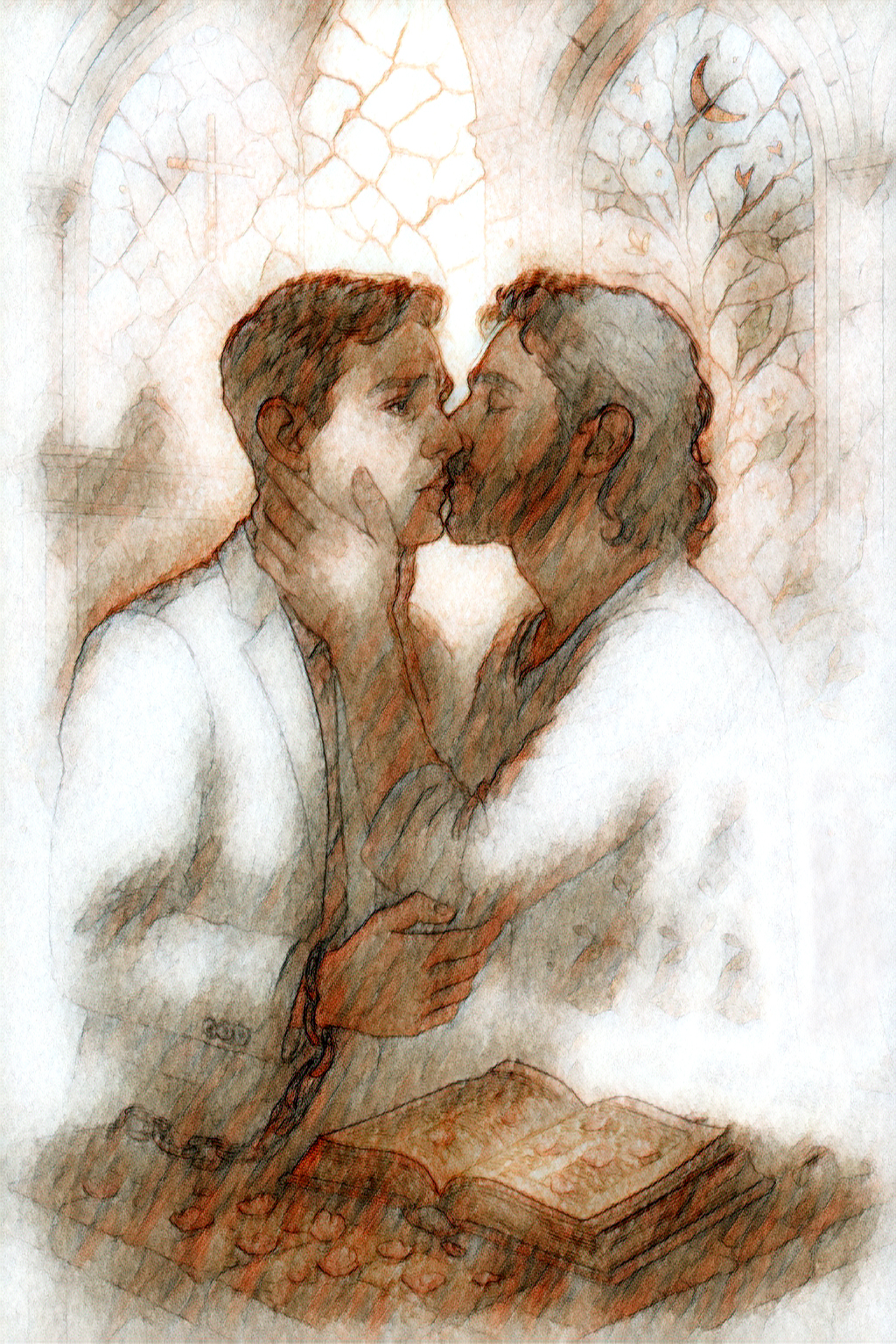My dearest readers,
There’s a moment in The Purging Room that I know will light up inboxes—and probably a few pulpits. It’s the scene where Phoenix, our buttoned-up businessman, receives an unexpected kiss from the enigmatic Dion. Not a peck on the cheek. A real kiss. Lips to lips. And here’s the scandalous part: he doesn’t immediately recoil in horror.
I can already anticipate the messages that will arrive after tomorrow’s release. “Randy, how could you write such a scene?” “This promotes confusion about God’s design!” “What will the children think?”
To which I respond: Exactly.
What will they think when they discover that attraction, desire, and connection exist on a spectrum far more beautiful and complex than our rigid categories allow? What happens when we stop demanding that every human experience fit into neat little theological boxes?
Phoenix’s moment with Dion isn’t about “turning gay”—it’s about becoming whole. It’s about recognizing that authentic spirituality embraces the full spectrum of human experience, not just the sanitized portions approved by religious committees.
I’ve watched too many friends destroy themselves trying to amputate essential parts of their humanity to fit into someone else’s definition of holiness. I’ve seen marriages crumble under the weight of unacknowledged desires. I’ve witnessed beautiful souls convinced they were broken simply because they loved differently than expected.
The most radical thing about that kiss isn’t its same-sex nature—it’s Phoenix’s willingness to remain present in the question rather than fleeing to familiar certainties. Instead of immediate categorization (“I’m not gay!”), he allows himself to wonder, to feel, to experience the mystery of attraction without demanding it resolve into comfortable labels.
This is what terrifies religious gatekeepers: people who trust their own experience over external authorities. People who understand that God—if you believe in such things—created bodies capable of pleasure, hearts capable of love, and souls capable of connection that transcend the binary limitations we’ve imposed.
The Purging Room suggests that perhaps our longings, in all their beautiful complexity, aren’t corruptions to be conquered but invitations to be explored. That maybe—just maybe—the divine speaks through desire as much as doctrine.
Some will call this heresy. I call it hope.
Unapologetically yours, Randy
P.S. The real scandal isn’t who we kiss—it’s how little we’ve allowed ourselves to truly feel.
The Purging Room RELEASES TOMORROW. You can BUY IT HERE or anywhere new books are sold.

Leave a Reply